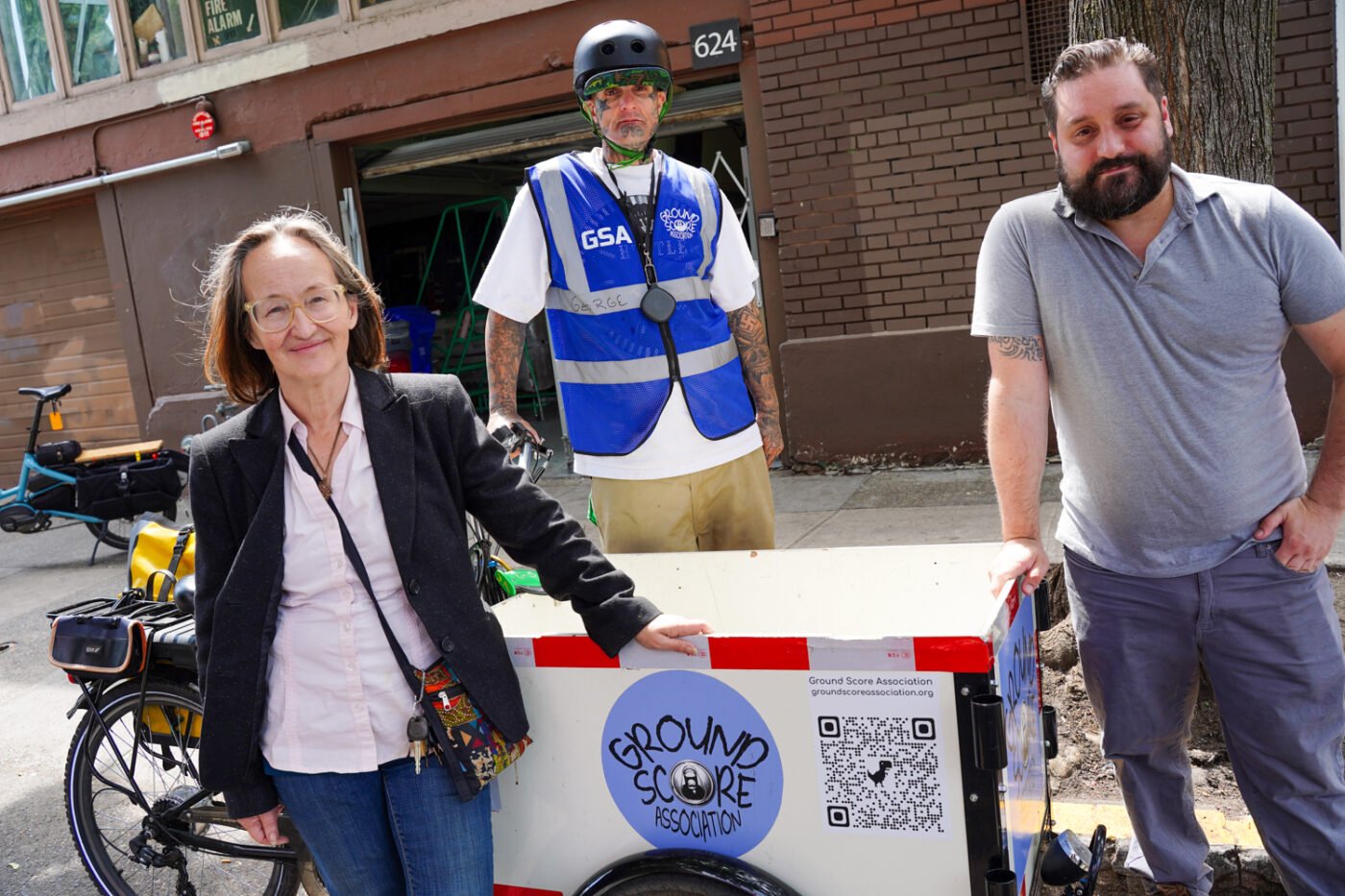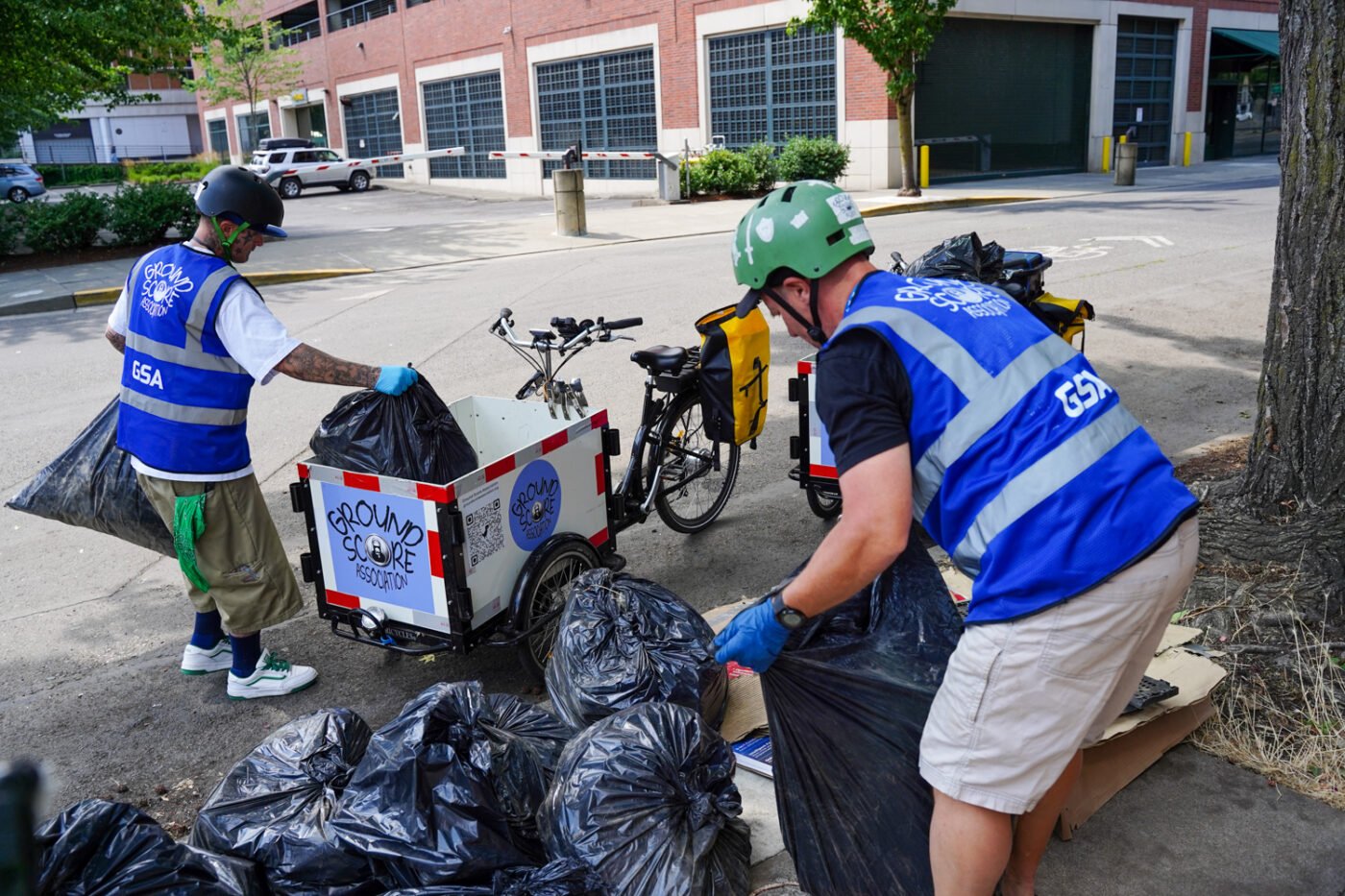
There’s a revolution in waste management taking hold inside a nondescript building in Old Town. Ground Score Association is using a fleet of pedal-powered cargo trikes to pick up trash, create good-paying jobs, and be much gentler on the community and the planet.
Mike Forney lived on Portland streets for 10 years before being hired by Ground Score Association. “There wasn’t a whole lot to do, so I just decided to start cleaning up the street I lived on, which was Southeast Belmont,” Forney shared with me as he loaded trash into the front bin of a cargo trike at the corner of NW Flanders and NW 1st on Thursday. “One of the team members came by and said, ‘Would you like a job?’ and I said, ‘yeah,’ so they hired me at $20 bucks an hour.”
“I was raised to be productive,” Forney added. “That’s why I like doing this.”
Ground Score Association Co-Executive Director Nic Boehm says folks like Forney are at the core of the mission. “We’re a low barrier labor organization,” Boehm shared during an interview on the second floor of their bustling headquarters on NW Couch. “We offer services like tents-side trash service. We go to areas where people are camped, and we offer to haul waste for them.”
Ground Score’s clients range from government agencies like Multnomah County, to private businesses. And they’re looking to expand into more parts of the central city.
Boehm and his team manage a fleet of four electric-assist cargo trikes (made in Old Town by Icicle Tricycles). “We use them as waste-hauling vehicles,” Boehm explained. “They’re really effective in the downtown core, Old Town/Chinatown area where the streets are small and it’s not always the best idea to bring a big ol’ truck through.”
Ground Score’s trikes can carry 450 pounds each and together they move about 1,400 pounds every four hours. They use radios and a dispatch system to respond to pick-up calls, which can often be far off the street in locations that would be inaccessible with a truck. For Boehm, the lower-cost, lower carbon footprint, and lower barrier-to-entry for operating a trike make it a very effective vehicle (many of their staff don’t have and/or aren’t able to receive a drivers license).
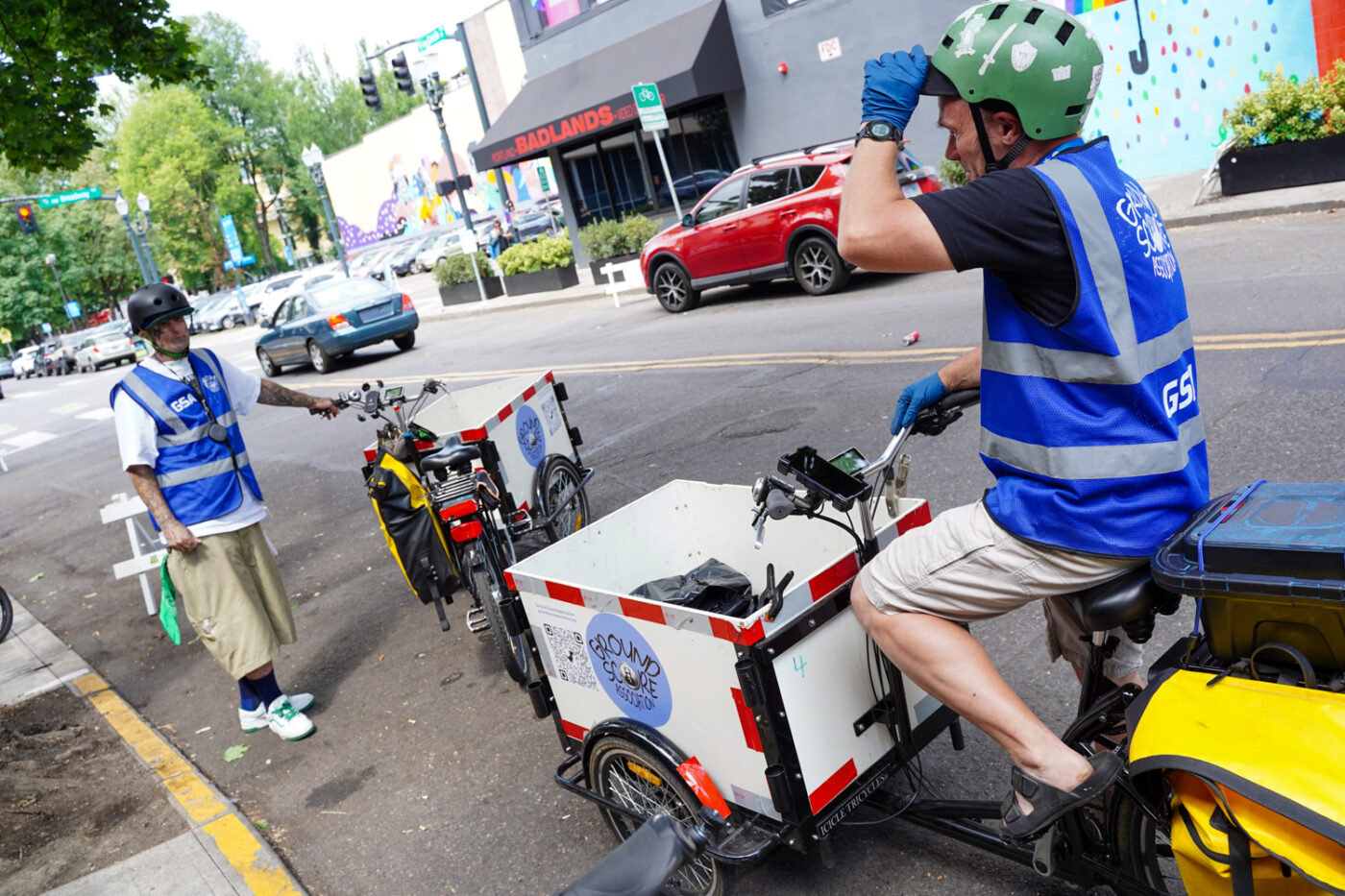
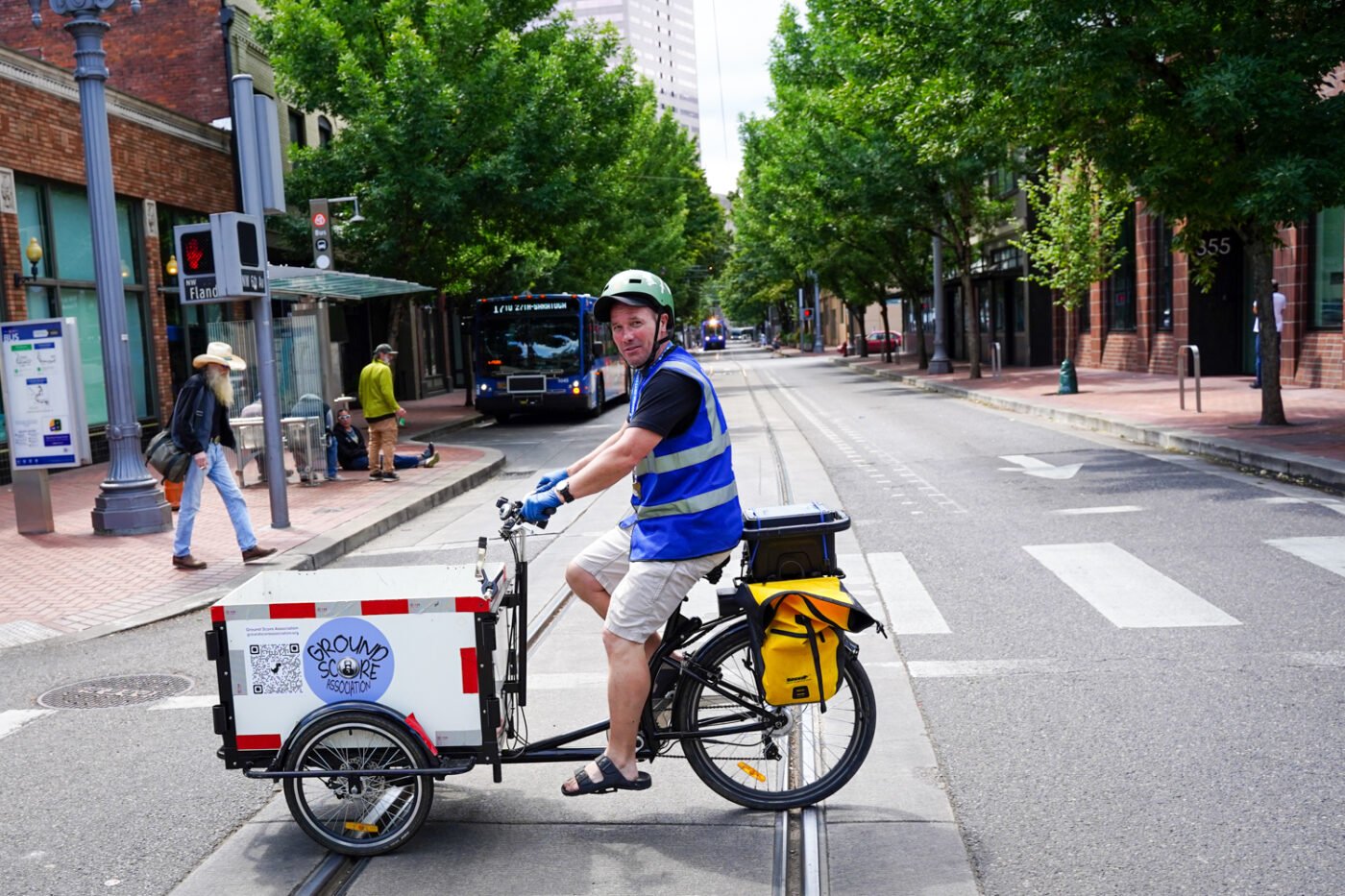
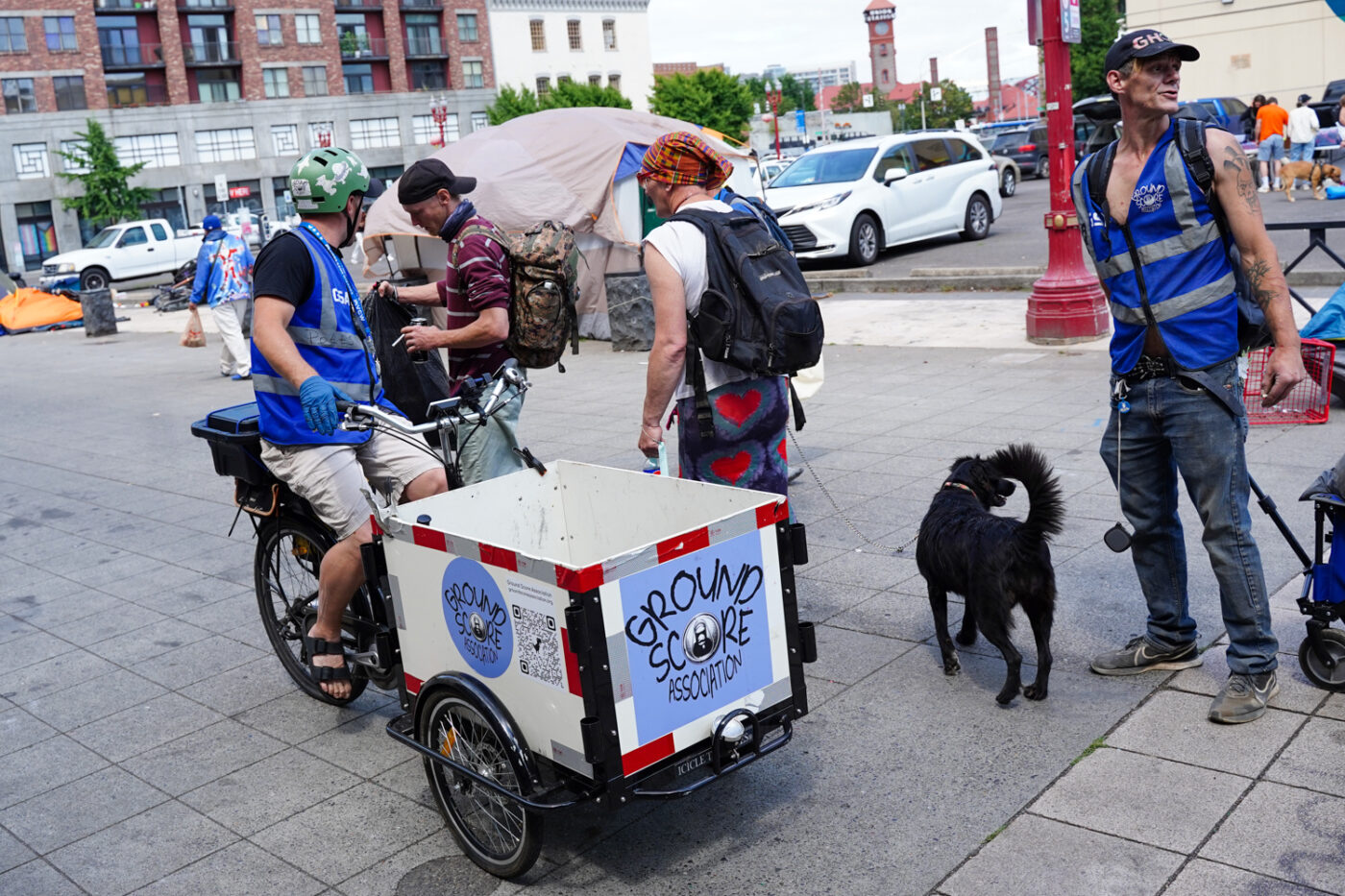
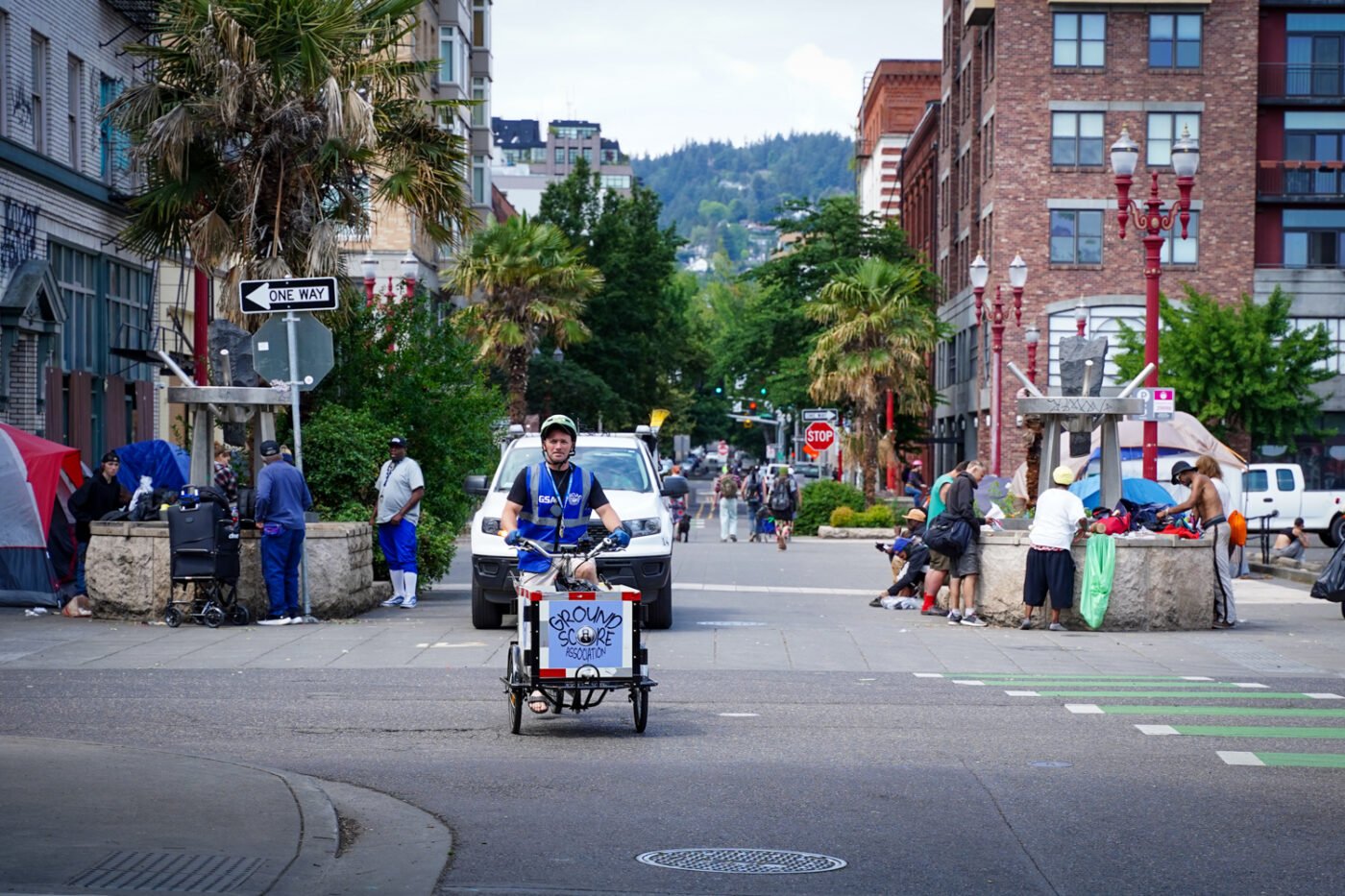
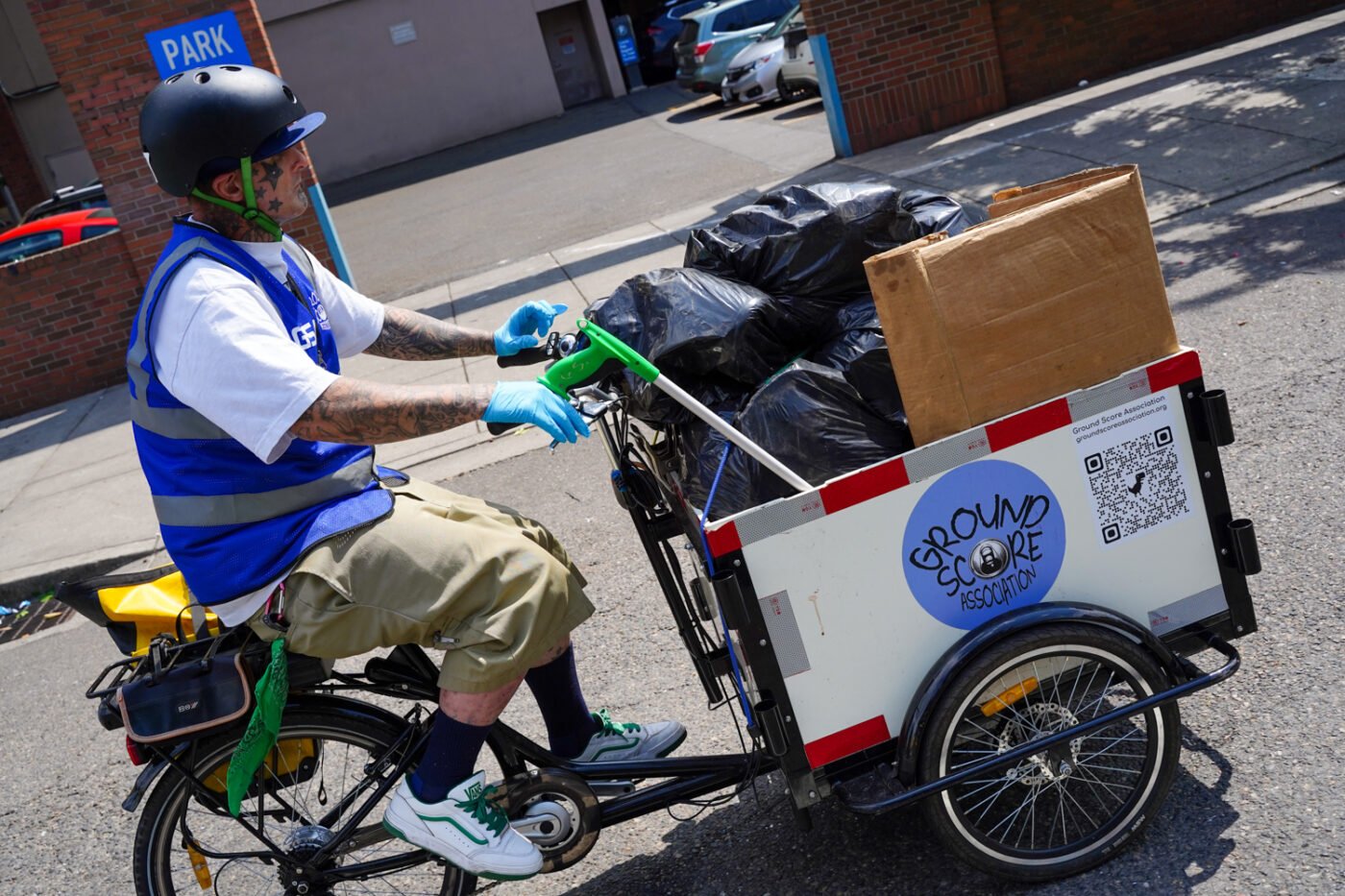
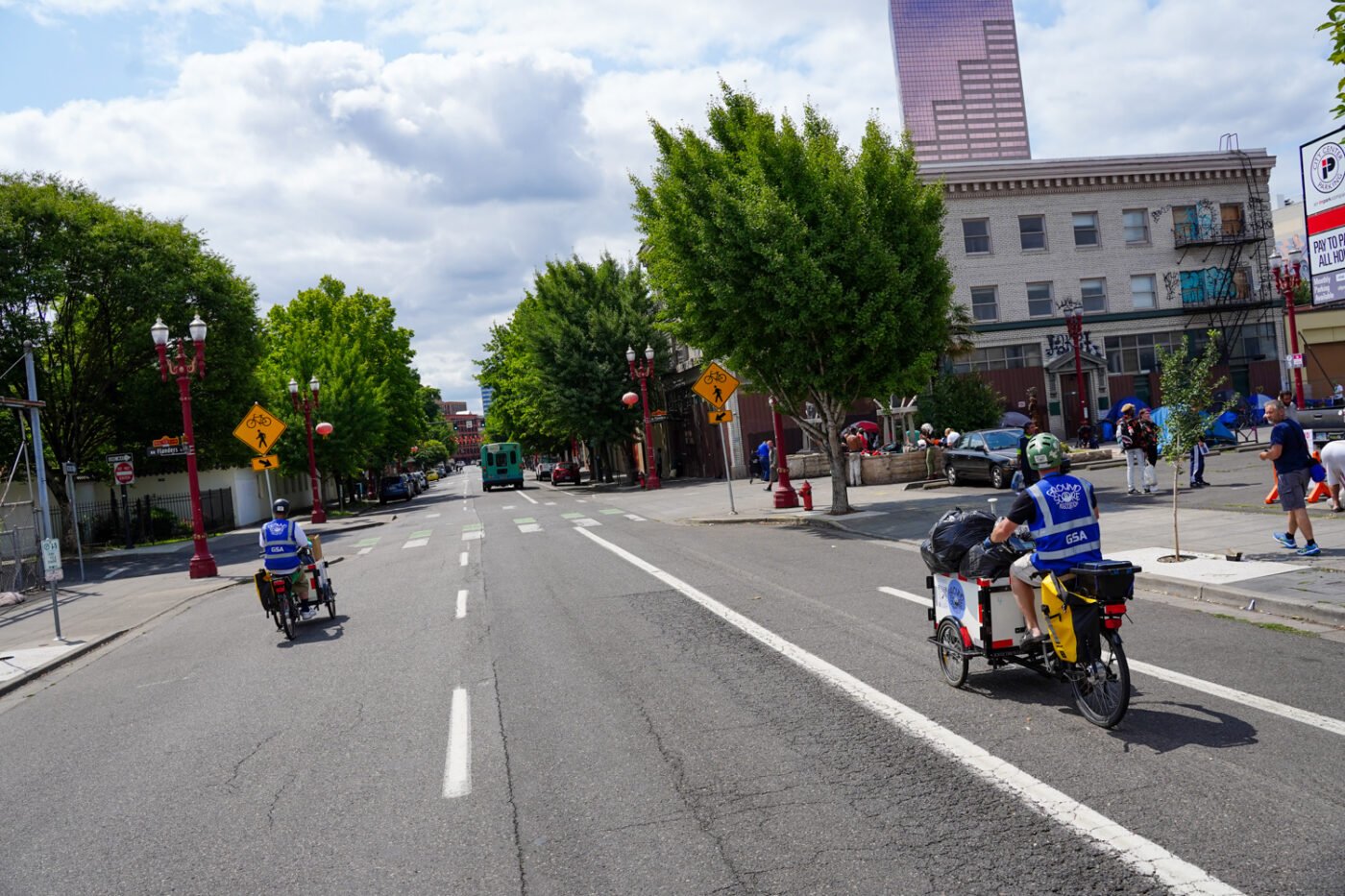
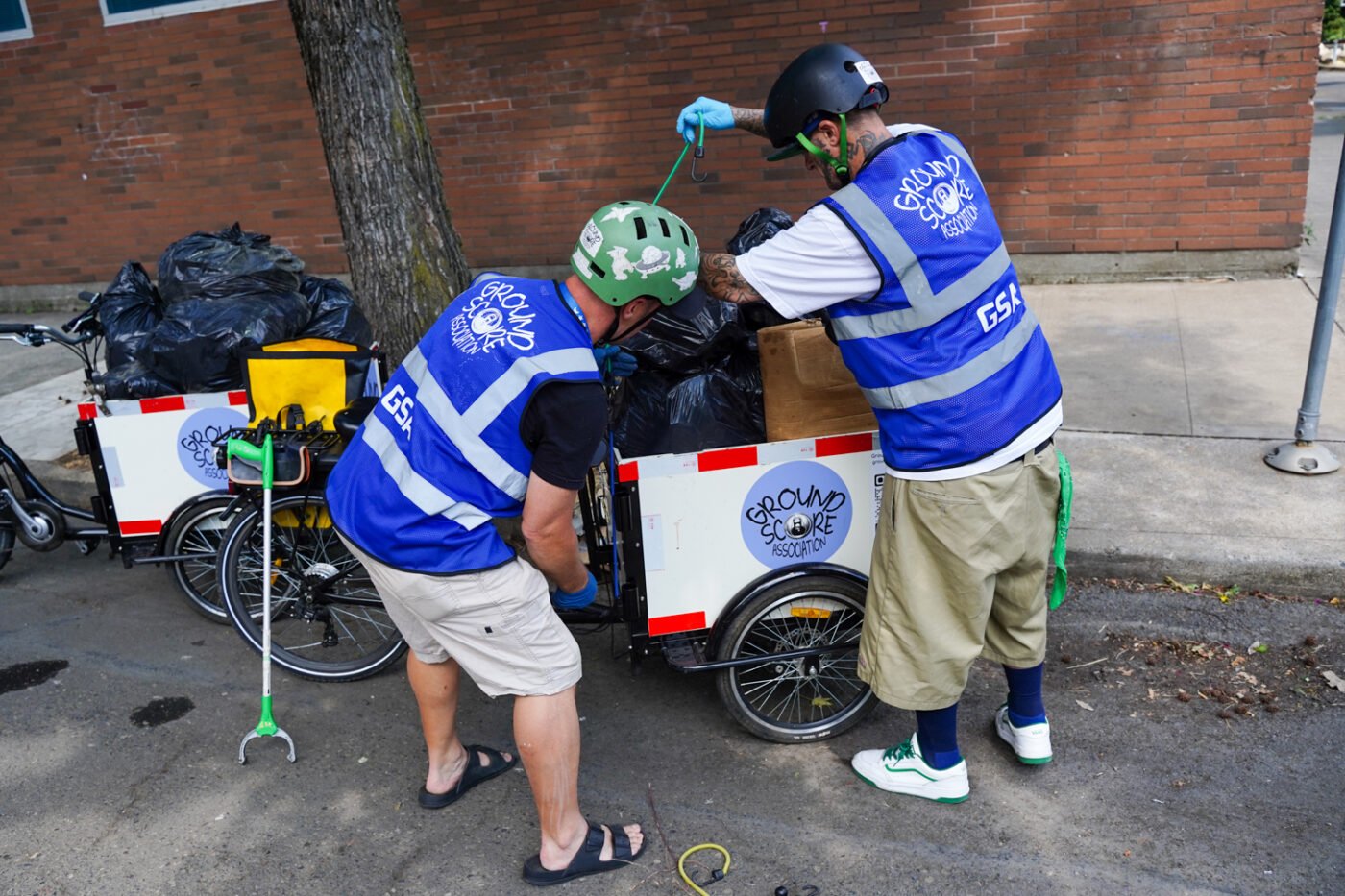
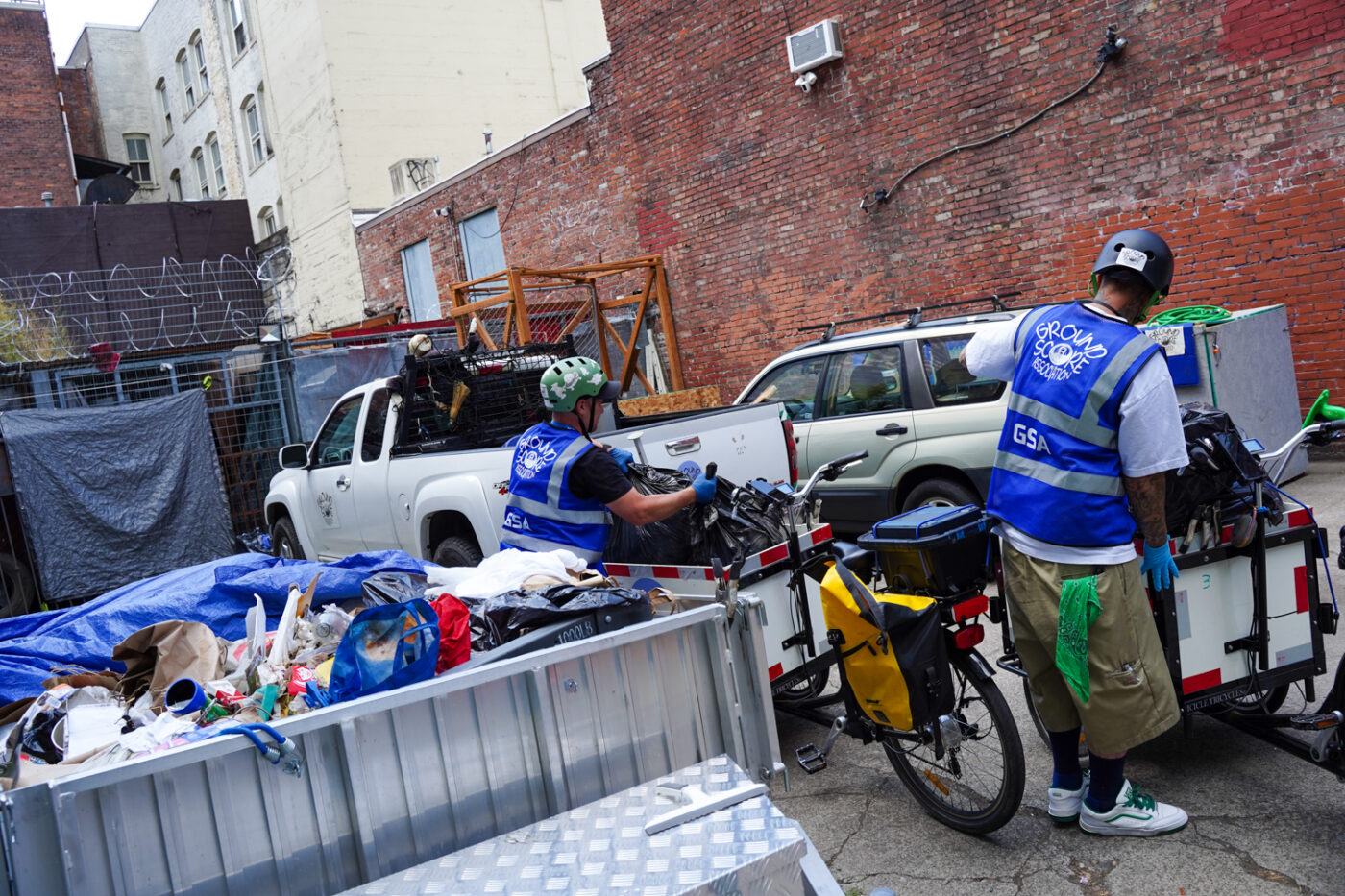
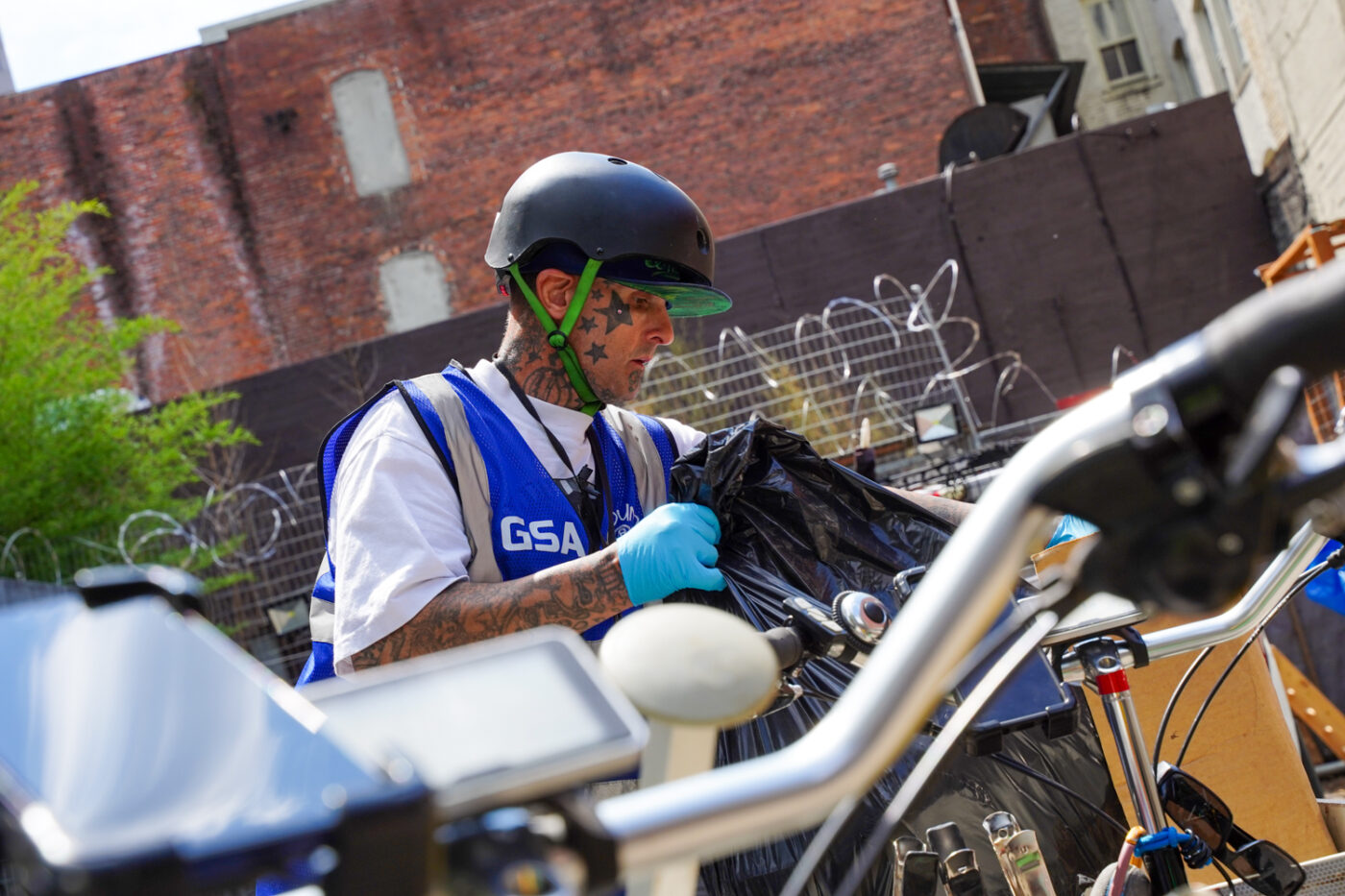
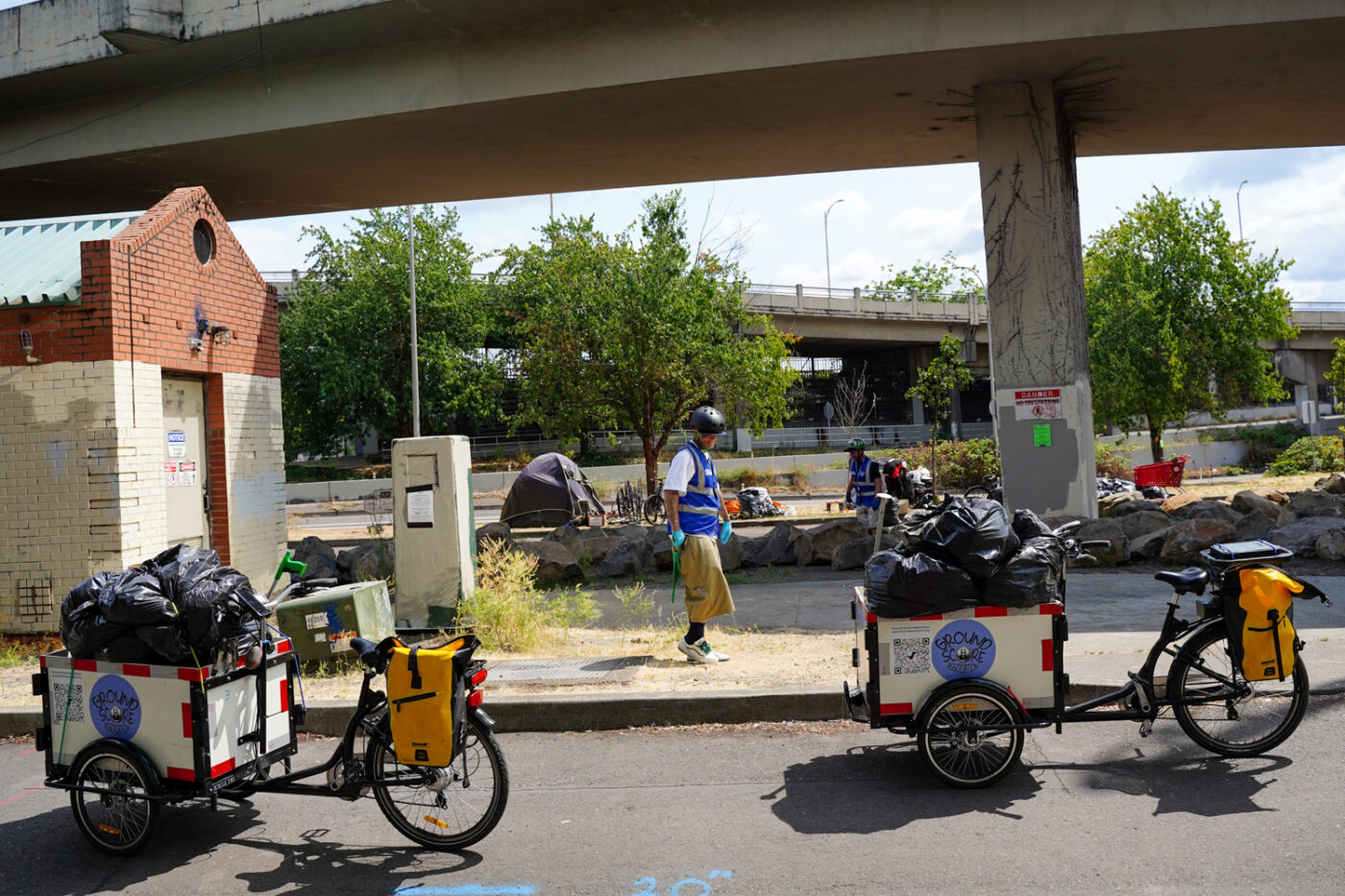
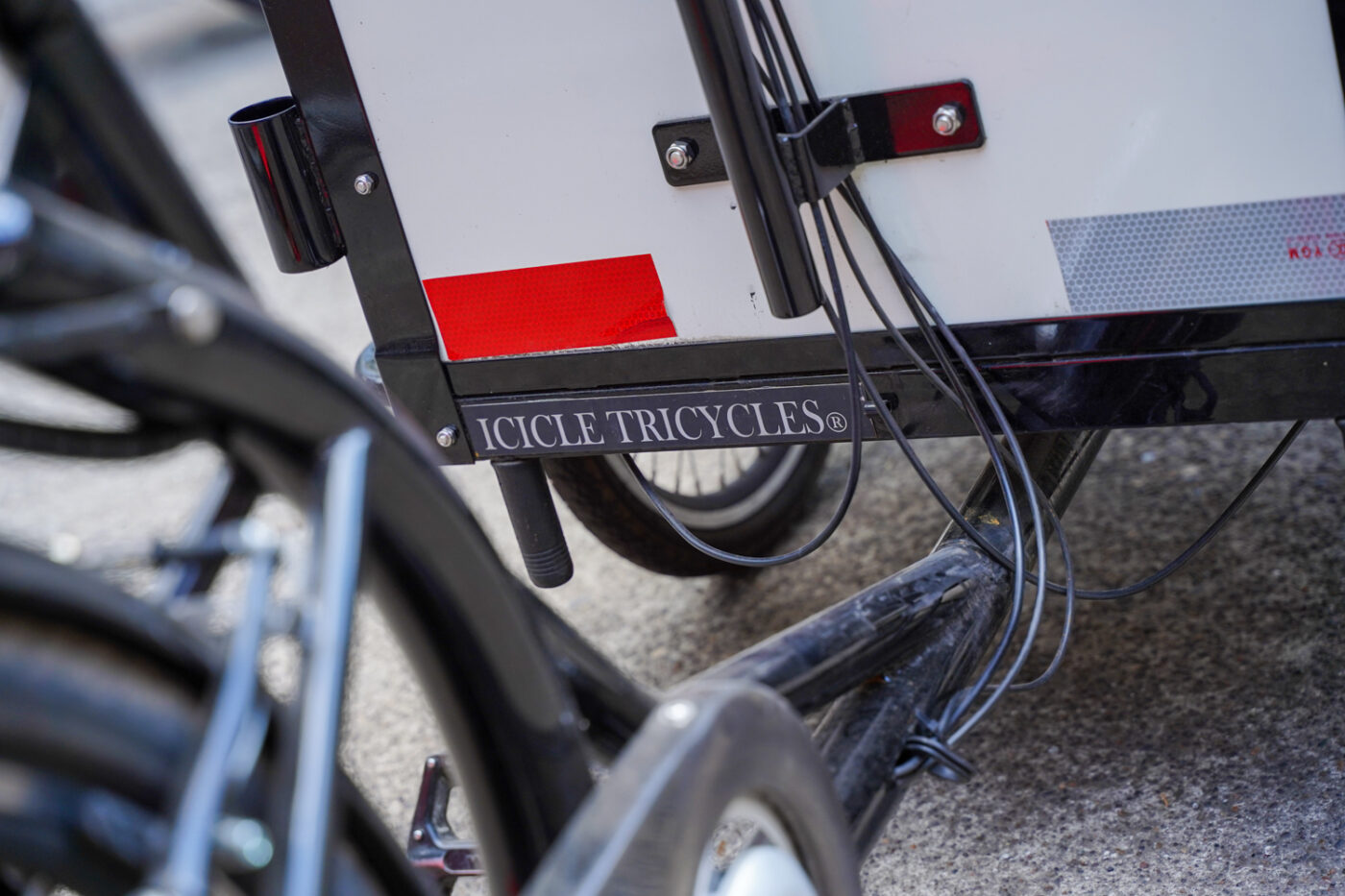
And for Barbra Weber, who co-founded Ground Score in 2019, the prospect of a well-paying job doing something many homeless people already have experience with, inspires people to turn their lives around. “We were a group of canners and dumpster divers and waste pickers that started this organization, and because a lot of us come from homelessness, we don’t tell people that they gotta’ get clean, we don’t tell them that they have to do act a certain way. We give them these opportunities. And then they’re like, ‘Hey, this is really cool. I’m helping the community.'”
“I’ve been doing this probably about four or five months now solid. I was able to get clean, get an apartment, and it’s all because of Ground Score.”
– George Hayes, Trike Lead
Trike Lead George Hayes says he loves helping people on the street. “Most people see me and they’re happy,” he shared. He will often pass out water and share advice and information with people he passes in camps. “I was out there. That’s where I come from,” Hayes said. “I’ve been doing this probably about four or five months now solid. This place gave me an opportunity to stop using [drugs] and stop drinking. I was able to get clean, get an apartment, and it’s all because of Ground Score.”
That community interaction is another bonus of having staff use trikes versus trucks. “When you go to a camp, I think there’s something about not bringing a big truck with you,” Boehm explained. “For a lot of people a truck calls up traumatic memories of being swept, and having the police there. There’s just something friendlier about rolling up with a bunch of guys on tricycles. It feels like you’re part of the community, on the ground level with people.”
“For a lot of people a truck calls up traumatic memories of being swept, and having the police there. There’s just something friendlier about rolling up with a bunch of guys on tricycles. It feels like you’re part of the community, on the ground level with people.”
– Nic Boehm, Ground Score co-executive director
When I rolled out of base with Forney and Hayes, the first time they slowed near a lot of tents, folks came out and bergan to chat. There were smiles and greetings, but they couldn’t stay long. They were on a call and had a pickup to do. When we arrived at NW Flanders and 1st, there were a few dozen large plastic trash bags on the corner.
Those bags are the bane of Boehm’s existence. He’s very excited about the Green Waste Hauling Initiative he’s created. It’s all about not using those oil-derived black plastic bags that are terrible for the environment. Instead, he equips his crew with large reusable IKEA tote bags and lines the cargo bins with a tarp. All trash they pick up gets put into the bin and then a winch picks up the tarp and dumps it into a large trailer.
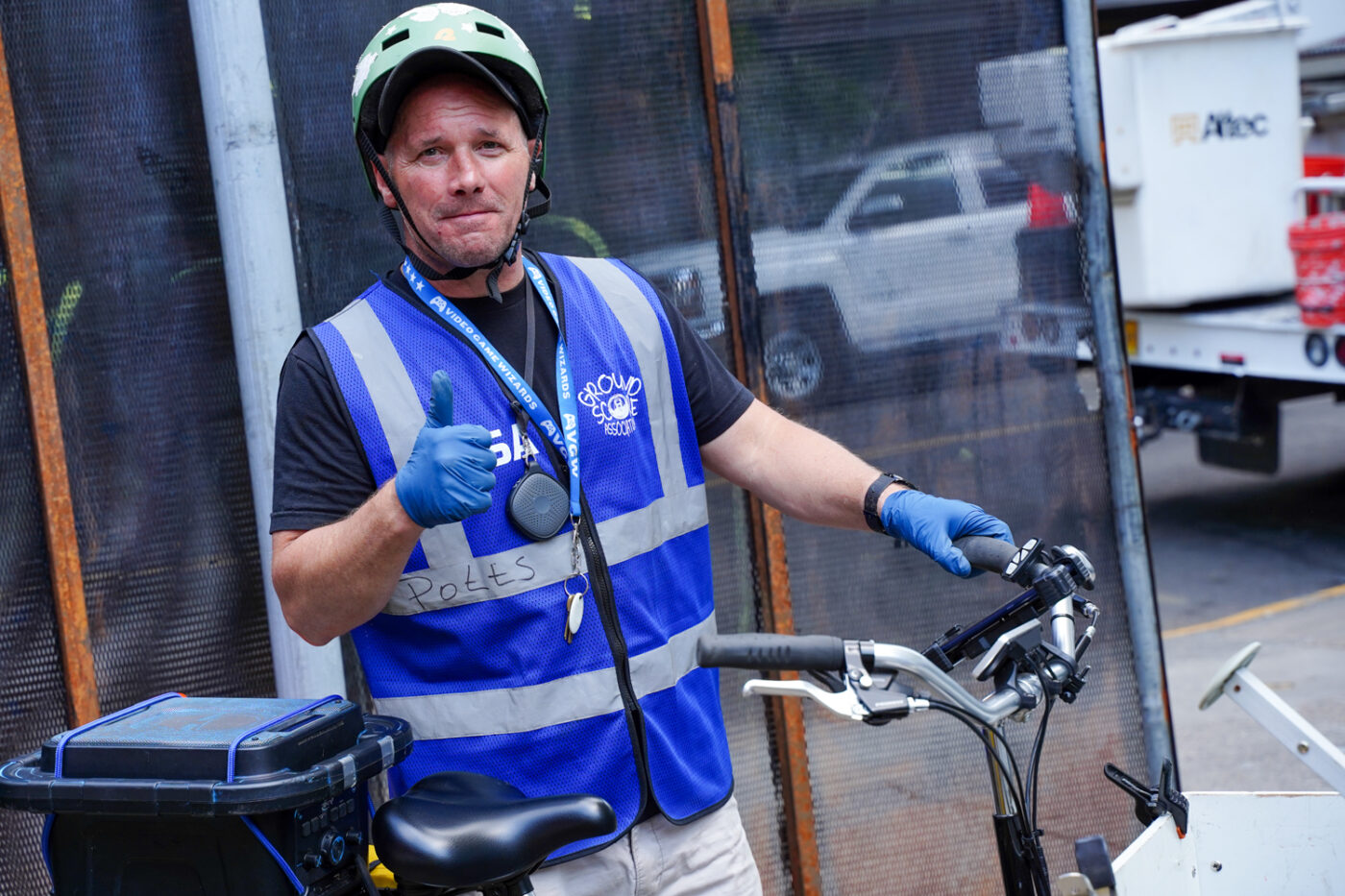

“Part of what inspired me is not just good environmentalism. I realized that our three basic expenses were; rent on this building, labor and plastic bags. There were months where I spent more on the bags then I spent on the rent! Making it the second most expensive thing that we that we buy, only to throw it away after being used for just an hour.”
“I’m converting that plastic bag money into wages for my workers.”
That fits right into what Weber says Ground Score is all about: “Trying to change society’s perception of who and what is considered valuable.”
And when people feel valuable, there’s a reciprocal phenomenon of being more valuable. “They see positivity. They see us giving back to the community,” Weber said. “We’re also contributing. We’re doing something that is making Portland a better place.”

